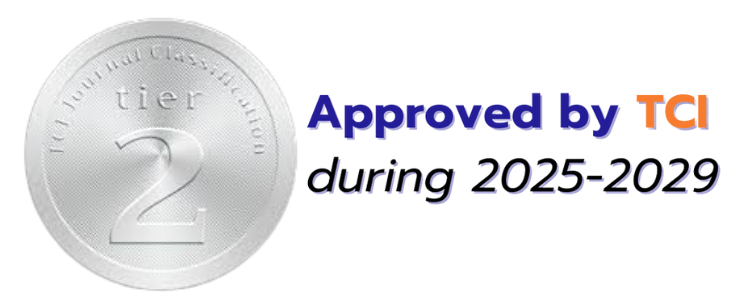ปัจจัยด้านความฉลาดทางการกีฬาที่ส่งผลต่อความสำเร็จในกีฬาประเภททีม|Sport Intelligence Factors Affecting Success in Team Sports
Keywords:
ปัจจัย, ความฉลาดทางการกีฬา, กีฬาประเภททีม, Factors, Sport intelligence, Team sportsAbstract
บทความนี้มีวัตถุประสงค์เพื่อศึกษาปัจจัยความฉลาดทางการกีฬาที่ส่งผลต่อความสำเร็จในกีฬาประเภททีม ซึ่งความฉลาดทางการกีฬา (sport intelligence) เป็นเรื่องที่นักวิชาการและบุคลากรทางการกีฬาได้ทำการศึกษามากขึ้นในปัจจุบัน และคาดว่าจะได้รับความสนใจในการศึกษาที่จะนำมาพัฒนากีฬาเพื่อความ เป็นเลิศในอนาคต จากการศึกษาเอกสาร ตำรา วารสาร และงานวิจัยทั้งในประเทศและต่างประเทศจำนวนหลายสิบเรื่อง โดยจากการศึกษาความฉลาดทางการกีฬา (sport intelligence) มี 5 ปัจจัย ดังนี้ คือ 1) ความสนใจหรือสมาธิ (attention) 2) ความจำ (memory) 3) การทำงานของสมองด้านการจัดการ (executive function) 4) ความสามารถในการประมวลข้อมูล (information processing) และ 5) ความสามารถเชิงมิติสัมพันธ์ (spatial ability) ซึ่งองค์ประกอบดังกล่าวจะช่วยพัฒนานักกีฬาทุกกลุ่มการแข่งขันให้ประสบความสำเร็จทุกกลุ่มประเภทกีฬา ได้แก่ ประเภทอยู่กับที่ (static sports) ประเภทตอบโต้ (interceptive sports) กีฬาประเภทกลยุทธ (strategic sports) หรือประเภททีม และประเภทอื่น ๆ
จากผลการศึกษาเอกสารและข้อมูลที่เกี่ยวข้องมีผู้กล่าวถึงความฉลาดทางกีฬาที่ส่งผลต่อความสำเร็จในกีฬาประเภททีม เป็นจำนวนมาก ผู้วิจัยจึงสนใจในการศึกษา วิเคราะห์ สังเคราะห์เรียบเรียง และนำเสนอบทความวิชาการเพื่อชี้ให้เห็นถึงความสำคัญของปัจจัยด้านความฉลาดทางการกีฬาที่ส่งผลต่อการพัฒนานักกีฬาประเภททีมสู่ความเป็นเลิศให้มีความสามารถสูงสุด และประสบความสำเร็จในการแข่งขัน ต่อไปในอนาคต
The purpose of this article is to describe the factors of sport intelligence that influences the success in team sports. The sport intelligence is an important factor that Is increasing studies by academic researchers and sport players and this factor will be used to develop to sport excellence in the future. From the study of dozens of documents, textbooks, journals, and research both domestically and internationally. According to previous studies, there are 5 c factors of sport intelligence: 1) attention 2) memory 3) executive function 4) information processing 5) spatial ability. These components are crucial to enhance sport players in all groups to compete successfully playing sports such as: static sports, interceptive sports, strategic sports or team sport and other types.
The summary from, documents and related information contained many mentions about the sport intelligence was a factor that affected the accomplishment in team sports. The sport intelligence is an influential key of team sport players skill development to high performance and accomplishment in the future competition.
Downloads
References
Department of Physical Education. (2020). Sports intelligence : the role of cognitive performance on sporting success in thai youth athlete. Bangkok: Department of Physical Education.
Department of Physical Education. (2021). Sports intelligence : the role of cognitive performance on sporting success in thai youth athlete. Bangkok: Department of Physical Education.
Krabuanrat, C. (2009). Nine-square and brain development (2 ed.). Bangkok: Sintana Copy Center.
Krabuanrat, C. (2018). Science of coaching (2 ed.). Bangkok: Sintana Copy Center.
Krabuanrat, C. (2021a). Motor control. Unpublished manuscript.
Krabuanrat, C. (2021b). Techical term. Unpublished manuscript.
Krabuanrat, C. (2021c). Intellectual development of children [Unpublished manuscript]. Bangkok: SCG Badminton Academy.
Maturos, N. (1991). Psychological personality of team athletes [Master of Arts]. Bangkok: Kasetsart University.
Makaje, N. (2021). Measuring and testing the moter abilities of movement to improve the learner brain [power point]. Nakhon Pathom: Kasetsart University.
Mańkowska, M., Poliszczuk, T., Poliszczuk, D., & Johne, M. (2015). Visual perception and its effect on reaction time and time-movement anticipation in elite female basketball players. Polish Journal of Sport & Tourism, 22(1), 3-8.
Meng, F-W., Yao, Z-F., Chang, E. C., & Chen, Y-L. (2019). Team sport expertise shows superior stimulus-driven visual attention and motor inhibition. PLoS ONE, 14(5), 1-14. https://doi.org/10.1371/journal.pone.0217056.
Ministry of Education. (1994). come to know, come and try, come to play sports. Bangkok: Ministry of Education.
Nazarenko, L. D. (2013). The Role of Intelligence in Sport. https://cyberleninka.ru/article/n/the-role-of-intelligence-in-sport.
Sternberg, R. J., & Pretz, J. E. (2005). Cognition and Intelligence. New York: Cambridge University.
Thamontouen, A. (1998). A study on response time of term, dual, and individual sports toward different self esteem athletes (Sport Science). Bangkok: Kasetsart University.
Thanirat, J. (1985). Sports guide (2ed.). Bangkok: Odeon Store.
Vestberg, T., Reinebo, G., Maurex, L., Ingvar, M., & Petrovic, P. (2017). Core executive functions are associated with success in young elite soccer players. PLoS ONE, 12(2), 1-13. doi:10.1371/ journal.pone.0170845
Yongtawee, A., Park, J., Kim, Y., & Woo, M. (2021). Athletes have different dominant cognitive functions depending on type of sport. International Journal of Sport and Exercise Psychology, 20(1), 1-15. DOI: 10.1080/1612197X.2021.1956570
Yongtawee, A., Park, J., Kim, Y. & Woo, M. (2022). Athletes have different dominant cognitive functions depending on type of sport. International Journal of Sport and Exercise Psychology, 20, 1-15.
Yonwisut, T. (2009). A construction of Athlete cohesion measure in team sport (Sport Science). Bangkok: Kasetsart University.







